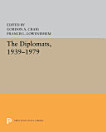Geneva, Zurich, Basel: History, Culture, and National Identity
Jul 2014 · Princeton University Press
3.0star
1 reviewreport
Ebook
116
Pages
family_home
Eligible
info
reportRatings and reviews aren’t verified Learn More
About this ebook
Recognized by historians and politicians as a model for European unity, Switzerland is nonetheless a difficult country to understand as a whole. Whereas individual Swiss cities have strong identities in the international political, cultural, and economic arenas, the country itself seems to be less than the sum of its parts. To capture the elusive spirit of Switzerland, four eminent writers explore the roots of its political unity and cultural diversity in a series of urban portraits. Their observations make for both good storytelling and insightful social commentary.
Nicolas Bouvier offers a quick-paced history of Geneva--the city John Calvin had envisioned as a radiating center of godliness, international in its scope and legal in its methods--the home of the Red Cross and the League of Nations and, since 1945, the location of numerous disarmament and diplomatic conferences. Gordon Craig examines Zurich, the city of the militant religious reformer Huldrych Zwingli, whose centralizing political zeal was harnessed by subsequent generations of Zurichers to lead Switzerland in its modernization. Today's economically powerful Zurich is analyzed in terms of its liberal past as a refuge for political activists and artists, and in terms of its current generational divisions on moral and cultural questions. Finally, Lionel Gossman explores the conciliatory Basel of Erasmus, showing how vigorous independence, resourcefulness, and remembrance of its humanist traditions shaped the city's culture and economy. Tying together important themes in the histories of these cities, Carl Schorske focuses his introduction on how Switzerland has capitalized on their cultural differences and refined the art of political negotiation to serve a wide range of civic interests.
Originally published in 1994.
The Princeton Legacy Library uses the latest print-on-demand technology to again make available previously out-of-print books from the distinguished backlist of Princeton University Press. These editions preserve the original texts of these important books while presenting them in durable paperback and hardcover editions. The goal of the Princeton Legacy Library is to vastly increase access to the rich scholarly heritage found in the thousands of books published by Princeton University Press since its founding in 1905.
Nicolas Bouvier offers a quick-paced history of Geneva--the city John Calvin had envisioned as a radiating center of godliness, international in its scope and legal in its methods--the home of the Red Cross and the League of Nations and, since 1945, the location of numerous disarmament and diplomatic conferences. Gordon Craig examines Zurich, the city of the militant religious reformer Huldrych Zwingli, whose centralizing political zeal was harnessed by subsequent generations of Zurichers to lead Switzerland in its modernization. Today's economically powerful Zurich is analyzed in terms of its liberal past as a refuge for political activists and artists, and in terms of its current generational divisions on moral and cultural questions. Finally, Lionel Gossman explores the conciliatory Basel of Erasmus, showing how vigorous independence, resourcefulness, and remembrance of its humanist traditions shaped the city's culture and economy. Tying together important themes in the histories of these cities, Carl Schorske focuses his introduction on how Switzerland has capitalized on their cultural differences and refined the art of political negotiation to serve a wide range of civic interests.
Originally published in 1994.
The Princeton Legacy Library uses the latest print-on-demand technology to again make available previously out-of-print books from the distinguished backlist of Princeton University Press. These editions preserve the original texts of these important books while presenting them in durable paperback and hardcover editions. The goal of the Princeton Legacy Library is to vastly increase access to the rich scholarly heritage found in the thousands of books published by Princeton University Press since its founding in 1905.
Ratings and reviews
3.0
1 review
About the author
Carl Emil Schorske was born in the Bronx, New York on March 15, 1915. He received a bachelor's degree from Columbia University and a master's degree from Harvard University before serving in the Office of Strategic Services during World War II. After the war, he returned to Harvard for his Ph.D. He taught at several universities including the University of California, Berkeley, Princeton University, and Wesleyan University. In 1966, he was one of 10 "great teachers" pictured on the cover of Time magazine. He wrote several books during his lifetime including Fin-de-Siècle Vienna: Politics and Culture, German Social Democracy, 1905-1917, and Thinking with History: Explorations in the Passage to Modernism. In 1981, he received the Pulitzer Prize for general nonfiction and was among the first class of recipients of a MacArthur fellowship, the so-called genius award. He died on September 13, 2015 at the age of 100.
Rate this ebook
Tell us what you think.
Reading information
Smartphones and tablets
Install the Google Play Books app for Android and iPad/iPhone. It syncs automatically with your account and allows you to read online or offline wherever you are.
Laptops and computers
You can listen to audiobooks purchased on Google Play using your computer's web browser.
eReaders and other devices
To read on e-ink devices like Kobo eReaders, you'll need to download a file and transfer it to your device. Follow the detailed Help Center instructions to transfer the files to supported eReaders.






